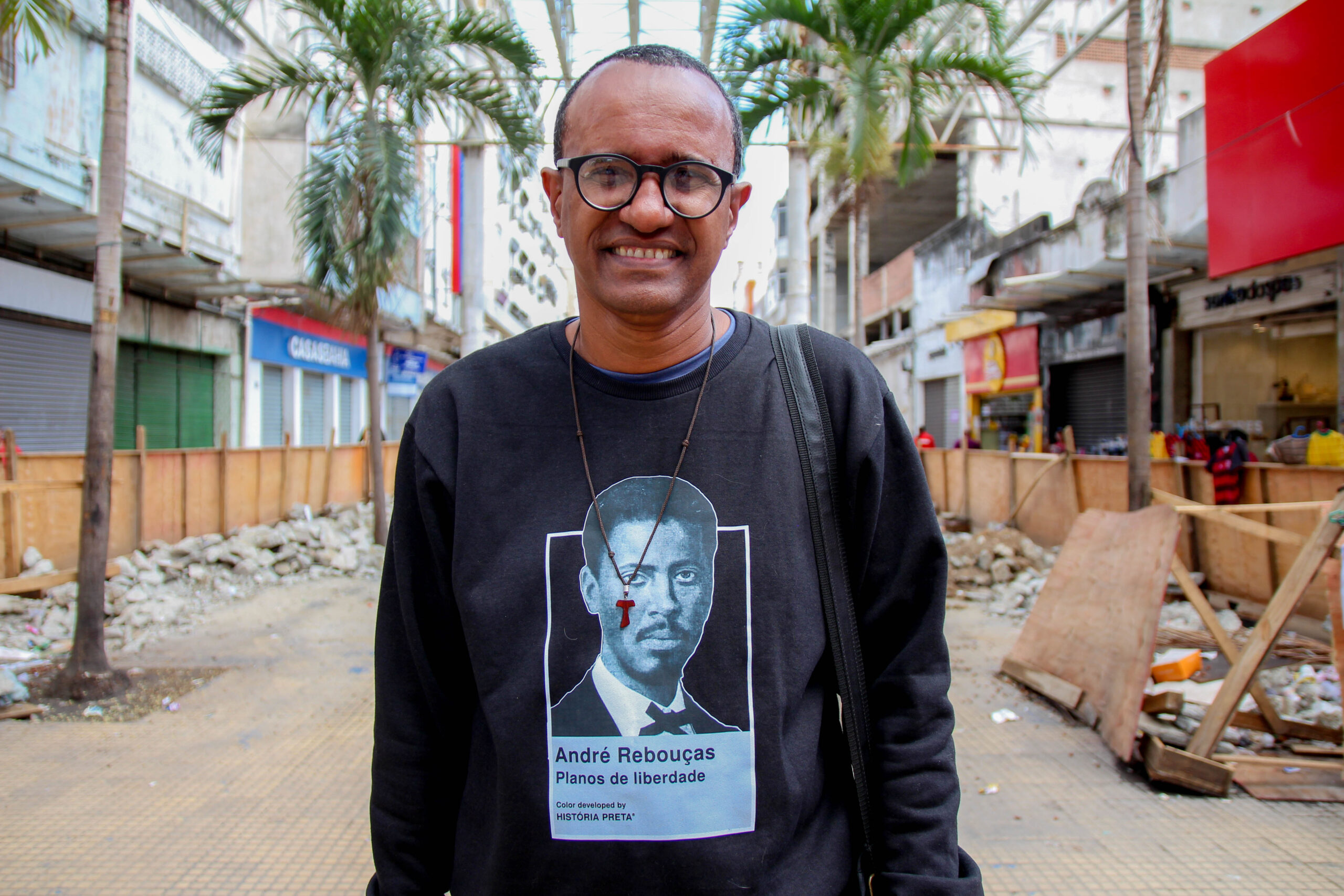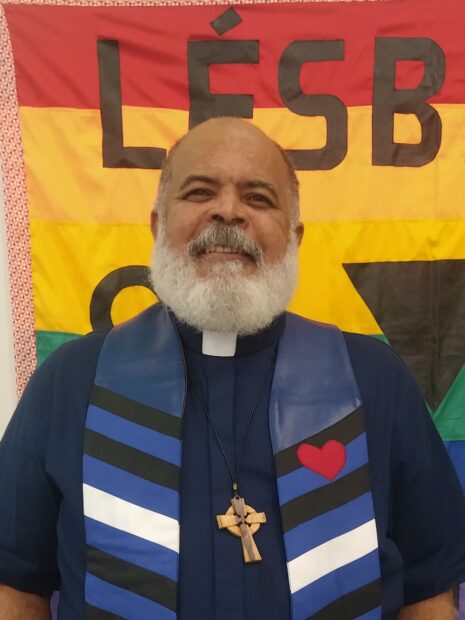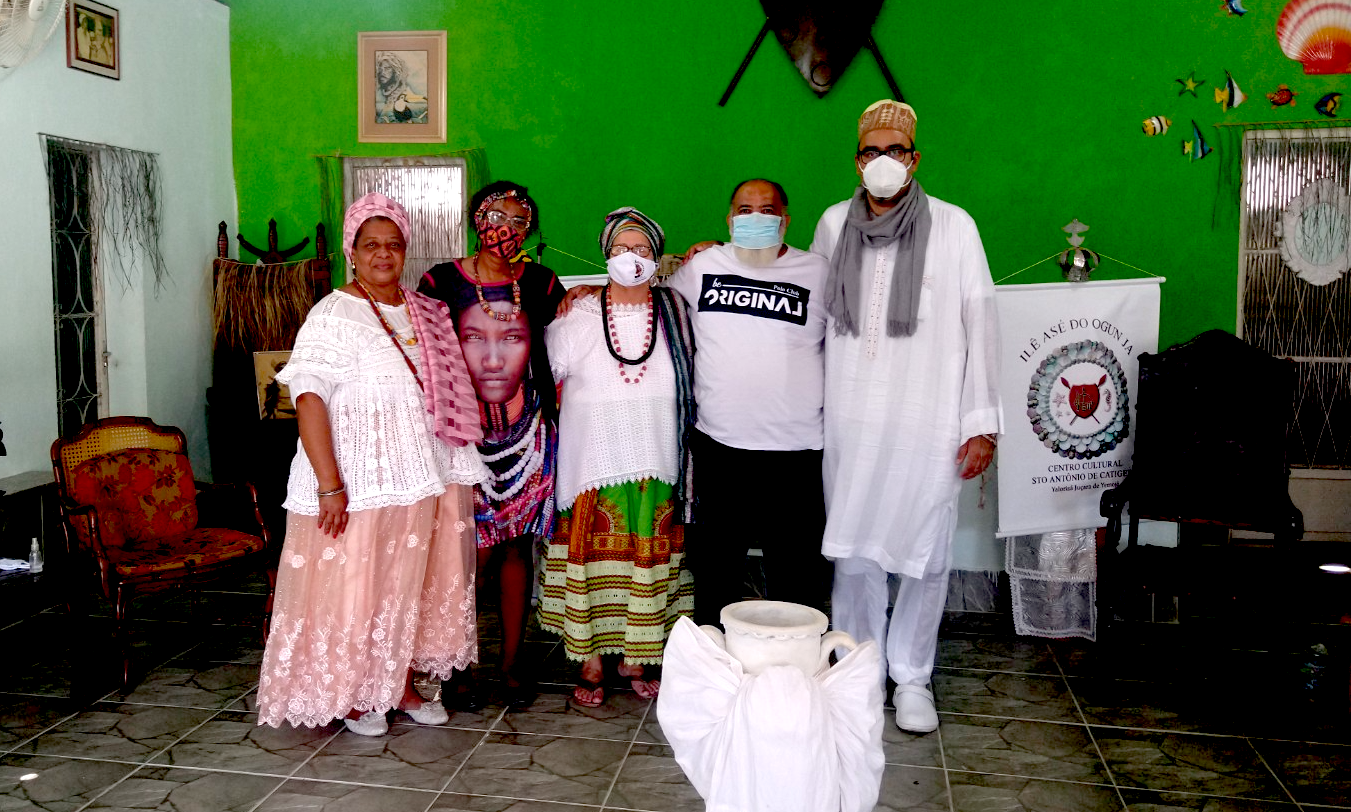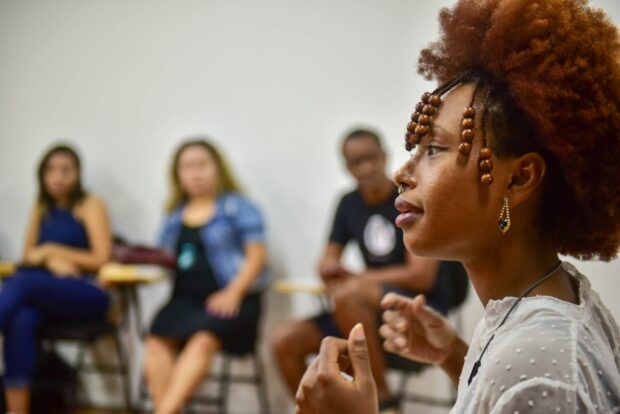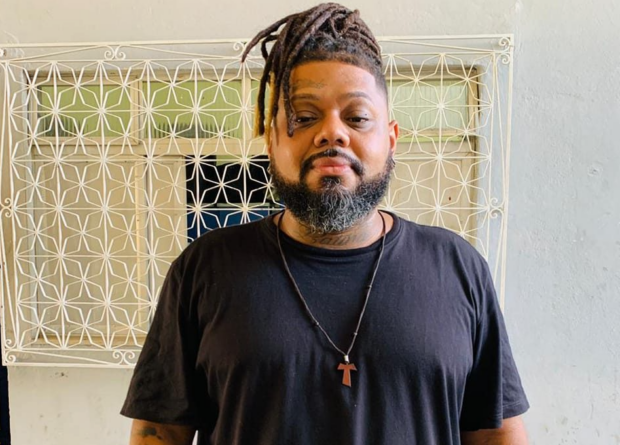
In Brazil, progressive evangelicals have been organizing against religious intolerance, racism, and the far-right. The Evangelical Front for the Rule of Law is an example of this: a Christian movement that defends democratic rights and promotes social justice, which has been challenging Prosperity Theology and the power culture within the church since 2016.
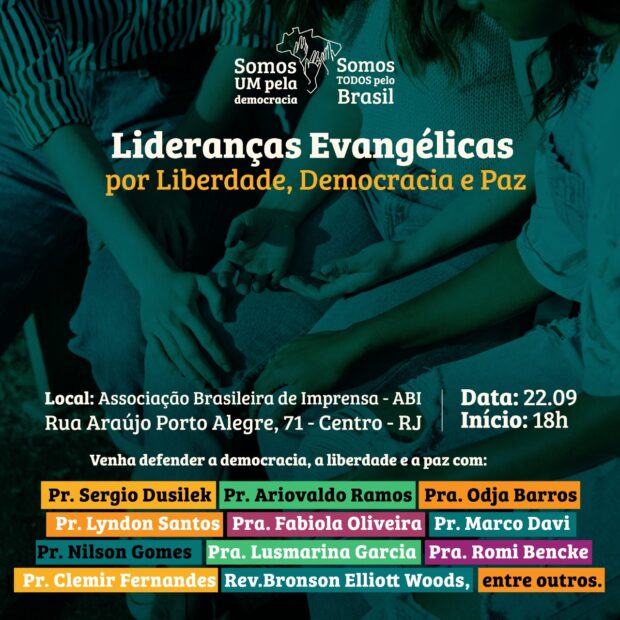
On September 22, the Evangelical Front organized a “Meeting of Evangelical Leaders for Liberty, Democracy, and Peace,” with the intention of “considering Brazil’s current situation in which many pastors and Christians have been persecuted for exercising their constitutional right to express their opinion.”
The New Evangelical Narratives, a “community platform which recognizes and affirms evangelical diversity” offers a space that supports the anti-fundamentalist movement and affirms the existence of many diverse ways to be religious. The platform supports the exercise of democratic liberty, the right to vote, and the arts.
However, according to 51-year-old Vladimir de Oliveira Souza, pastor of the Baixada Redemption Church, when one searches for progressive faith communities in and around the favelas of Greater Rio, you only find two: his own, and the Comuna Church. He points out that historically the evangelical movement has been conservative, but over the past few years an ultra-conservative surge has taken over, supporting the far-right. Speaking about Greater Rio’s Baixada Fluminense region, where his church is located, he says:
“The fight against hunger, for human rights, gender diversity, and climate justice has always been led by a smaller group within the evangelical movement, which is now even more geographically isolated because the conservative churches here in the Baixada Fluminense—the type that burn for the return of Jesus—have really grown. And Bolsonaro has a lot of influence over these people. They believe that a great revival is coming, and Bolsonarism has found its place in these beliefs. It doesn’t surprise me that we are the only progressives around here—to tell the truth, it makes me sad.”
According to a survey taken in early September 2022 by IPEC (Intelligence in Research Consultants), 48% of evangelical voters intend to vote for the re-election of President Jair Bolsonaro (Liberal Party – PL), while former President Lula (Workers’ Party – PT) has the support of 26%. However, the number of evangelicals supporting Bolsonaro has been falling since 2018.
This article presents two progressive churches in Rio de Janeiro: the Baixada Redemption Church, located in Nilópolis, Baixada Fluminense, and the Comuna Church, located in São Gonçalo, a city in Greater Rio’s Eastern Region—to the east of the Guanabara Bay. Based in Latin American theology and the realities of the favelas where they are located, the pastors and both their churches have as their mission the fight for human rights, anti-racism, and gender diversity.
The Baixada Redemption Church: A Church Within a City
Simple, organic, and informal, the Baixada Redemption Church started up eight years ago. Pastor Vladimir de Oliveira Souza has a degree in Theology and Pedagogy and has done postgraduate work in Education and Social Project Management. A resident of Nilópolis, he is also the Coordinator of Pedagogy and organizer of Casa Semente, an NGO that services Jardim Gramacho in Duque de Caxias, supporting children and adolescents in vulnerable social conditions.
“The Baixada Redemption Church defines itself as economically poor and structurally open. We have a nonhierarchical, horizontal structure, and avoid the mechanics of organizational management. We believe in the solidarity economy of God’s kingdom and not in the church-business model established in Brazil. Here in the Baixada Fluminense, we work through collective experiments to find new ways to be a church: more public, simpler, inclusive and militant. A church embodied in the dilemmas and potential of our own community. A church of citizens, who believe and live the gospel while keeping our feet on the ground that life offers us. We want to be a socially just community, politically protestant, economically cooperative, environmentally healthy, and spiritually celebratory.” — Pastor Vladimir de Oliveira Souza
The Baixada Redemption Church is a church within a city, or rather, besides helping people, it intends to be a relevant cultural community alongside existing cultural, social, and environmental movements. Pastor Souza continues:
“Our most recent religious encounter occurred at a Landless Rural Workers Movement (MST) settlement located in a reforestation project. The struggle for land rights and taking care of our common home are values and actions that are material reflections of our experience of the sacred. The complete radical inclusion of LGBTQIAP+ people is a way for us to be accessible to everyone. Our theological axis cuts across questions of social justice, eradication of poverty and hunger, and the fight for the inherent natural dignity of human beings. This is all the result of a respectful and intentional relationship with the democratic rule of law.”
Baixada Redemption Church meets twice a week. On Thursday, the small study group meets remotely, and on Sunday there is a service in a co-working space in the Nilópolis city center. The service has a communal breakfast, moments of prayer, music, a sermon, and a sharing circle where everyone can be heard. Recently, Baixada Redemption Church created some new ministries: City, Culture and Communication, Social Justice and Health, and Equity, Gender, and Diversity.
The Comuna Church: Where Everyone is Treated with Dignity
Júlio César Oliveira is 56 years old and lives in São Gonçalo. He is the founder and pastor of the Baptist Community of São Gonçalo and president of the Common House Institute. In addition, he is part of a global association of Evangelical leaders—UK-based organization Tear Fund—that fights for justice, the defense of rights, and against poverty.
According to Oliveira, the Comuna Church, which has been in existence for 12 years, was born of a need for a movement that could reach people who were tired of the church, or who had never gone to church. Reinterpreting the Bible by updating the verses, and aligned with Latin American Liberation Theology, the Comuna Church is “a progressive church involved with human rights, which believes in the defense of life. It directly combats racism and misogyny. It has a governance system that we call the Common Council, where everyone has a voice. We are always on a ‘path of maturity’—every Sunday morning we discuss books with the intention to consider our faith, our city, and our care for people.”
When asked about the importance of democracy, the pastor comments: “For Christians, it has never been as important as it is now to fight for democracy and the right to vote. Without this right we will revert to the dictatorship and to being enslaved by a bunch of violent people who aren’t committed to life and to citizenship. With our democracy threatened, defending the constitution is fundamental, as it guarantees our right to vote. It’s crucial that we try to make people aware of the basic responsibilities that are needed to defend these three fundamentals: democracy, sovereignty of the people, and the right to vote.”
The Comuna Church works to diminish religious racism, LGBTphobia, hunger, and poverty. Pastor Júlio Oliveira says their intention is to broaden this agenda in 2023 to support socio-biodiversity, as well as supporting the faith, politics, financial autonomy, and employment of residents of Morro do Escadão in São Gonçalo through the Common Home Institute.
Elections and the Practice of Christianity
Besides the pastors mentioned above, several members of the Baixada Redemption Church and Comuna Church were interviewed for this article. Their reflections are included below.
Jizar Marques de Andrade Santos
“The right to vote is fundamental, but democracy is also defined by citizenship and the participation of all people. The constitution says that everyone has a right to dignity and a set of public policies that work towards the reduction of inequality. Rights can’t be privileges, or depend on meritocracy. My understanding as a Christian lies here: grace doesn’t depend on my deserving it or on what I’ve achieved. Rather, it’s bestowed by God on Jews and Gentiles alike. My church has been planting seedlings [as part of a reforestation project of the EAE Institute in Baixada Fluminense called ‘They Burn, We Plant‘]. We are also helping families by distributing basic food parcels. We have been doing projects to support LGBTQIAPN+ people, and we promote the pursuit of dignity in various ways, as a welcoming space for those who don’t have a voice in traditional structures.”
Débora Marques
“As a Christian, I understand that our fight has to be for justice, for life itself, and for peace. I think that the affirmation of democracy is extremely important because I know that it’s only through democracy that our rights are guaranteed and maintained. In spite of moving forward slowly, step by step, knowing there is still a long way to go, our understanding that misogyny, racism, and LGBTphobia are crimes as defined by law and democratic process makes me feel that this is the right path to follow. As a Christian, I know that Jesus fought for the rights of those in need, fed the hungry, and fought against injustice and oppression.”
Leonardo Camargo de Almeida
“As an evangelical Christian in the Pentecostal tradition—by its very nature an insurgent movement which breaks traditional hegemony—I believe that a democratic state is essential for the social well-being of society and the free exercise of our citizenship. I see voting as a primordial part of the fight against social inequality, since we can elect representatives to fight for our causes. The constitution is important to conceive and define what the State should be, while also being a document that defines our rights and responsibilities as citizens, as well as the responsibilities of the State to its people.”
Larissa Velasquez de Souza
“Regarding the support and promotion of dignity for the LGBTQIAP+ population, our church has been a very positive and unique force in São Gonçalo, creating a community of faith that is open to our brothers and sisters without any intention to ‘cure’ (since they don’t have an illness) or ‘liberate’ (since we no longer believe the old fundamentalist perspective that demonizes sexuality and gender identity). In partnership with the São Gonçalo LGBTI Center and similar groups, we support dialogue around different ways of being. Our city is one of the most fundamentalist around here, with a huge number of churches that don’t concern themselves with promoting justice, which is what we, as a community of faith, believe should be the true vocation of the church in its own community. Recently, we participated in a human rights course given by the EIG Women (Evangelicals for Gender Equality), where we learned about this topic. Everything I’ve mentioned works towards the promotion of human rights.”
Karen Ianino
“Voting is a civic responsibility which binds the entire social structure together, and which needs to be exercised with immense responsibility by every Christian. Democracy is a non-negotiable value for those who want to live well in our common home. The role of those who follow the Nazarene is to defend the democratic rule of law. In doing this, we are following in the steps of the One that we reference as the paradigm of our faith. We value our history, in which many of us Christians were persecuted and vilified just for being who we are. In the end, to understand the relevance of voting and of democracy is to understand that these two elements are fundamental for the freedom to be, as a clear reflection of a view turned towards community.”
Cinthia Cunha
“It’s a shame that we need to defend democracy in a country that has been marked by the cruelty of a dictatorship. Ideally, we should be talking about how our democracy can be strengthened in order to fulfill its main function. That is, to give power to the people. Given the extremist talking points which put our democracy in question to the point where we almost see it slipping through our fingers, we need to intensify the defense of democracy by exercising our right to vote. Yes, even though it’s required, this can only be challenged if we have the right to debate it. Democracy is fulfilled when everyone has access to the same opportunities and possibilities—with equity, historical reparations, and the disappearance of privilege. I believe the only path for democracy and equity is for those who have more to give up some so that those who have less can gain some.”
According to the evangelicals interviewed for this article, the role of a Christian is to be as Christ was, someone who denounces oppression and embodies the possibility of a less cruel world. The exercise of democracy, exercised through voting, is this: to be able to denounce injustice and imagine the future for all persons and children of God.

